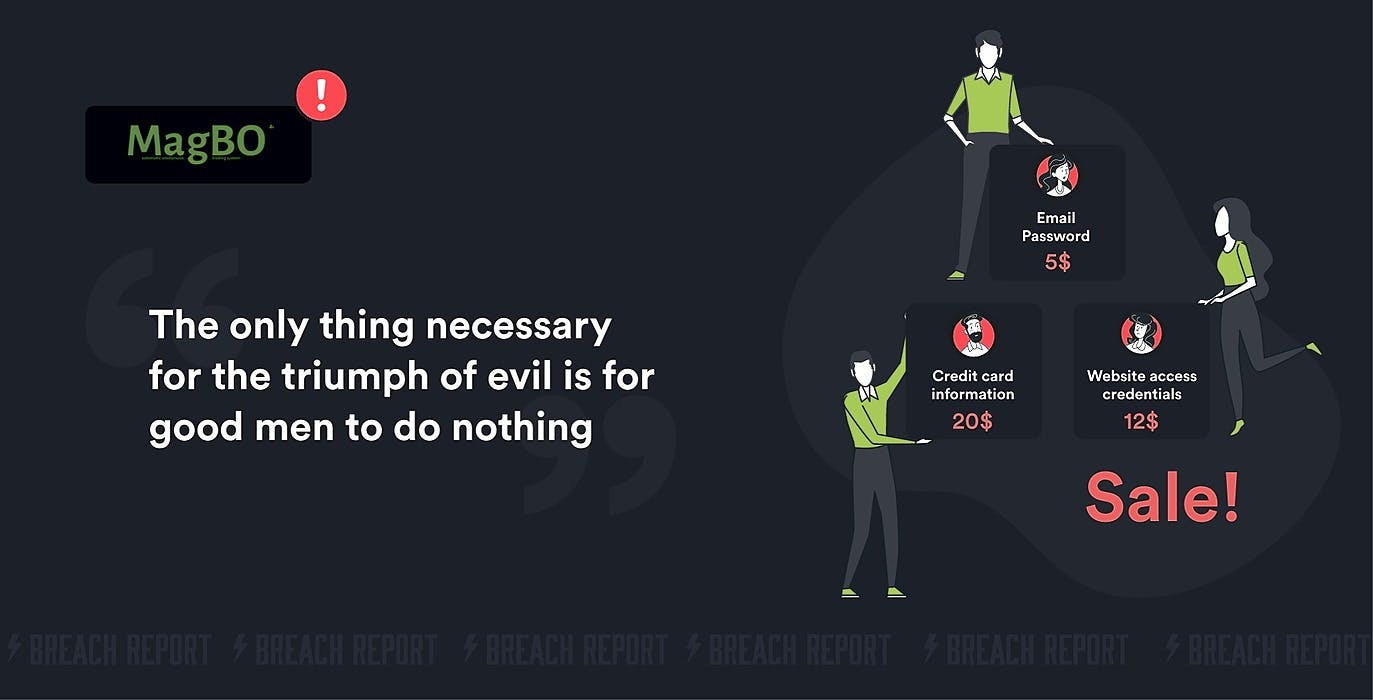708 reads
Darkweb Community MagBO Sells Data Stolen From Over 20k Websites
by
March 4th, 2020
Breach report - digital security platform. ATO prevention and 360 degrees credentials security.
About Author
Breach report - digital security platform. ATO prevention and 360 degrees credentials security.
